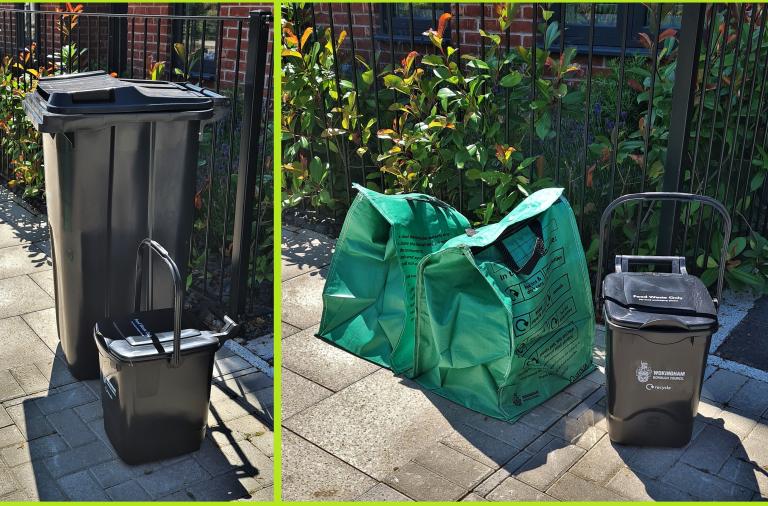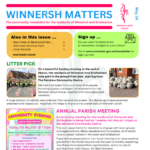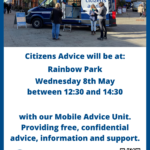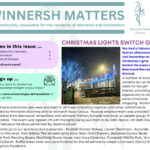Taken from Wokingham Borough News
Residents are urged to play their part in driving up Wokingham Borough’s recycling rates as the council prepares to change how it collects most people’s domestic waste in August 2024.
These changes offer an opportunity for the borough to become one of the best in the country for recycling while meeting, and hopefully exceeding, the Government’s future targets.
From next summer, most households will be putting their rubbish out in a 180-litre black wheeled bin which will be emptied fortnightly, replacing the current weekly blue bag collections.
The wheeled bins will be rolled out to these properties from May onwards, and enough additional blue bags will be issued to cover the period until collections start.
Recycling will still be collected from green sacks, which are free and with no limits on how many are put out, but this is also changing to fortnightly collections on weeks when rubbish isn’t taken.
Keeping everyone in the loop
The weekly food waste collections and optional fortnightly garden waste collections are unaffected and will continue at the same frequency, and from the same containers.
More information about collection dates, including any changes to existing collection days, will be available well in advance and will be widely publicised.
To help residents prepare for the changes, the council has created a detailed online guide. This will be regularly updated as the changes get nearer and more information becomes available.
Not all properties are suitable for wheeled bins, so alternative arrangements will be made in some cases, like flats or properties that don’t have any space to store them. The council is also reviewing the needs of larger households and those that produce medical waste.
We’re changing how we collect most people’s household waste 🗑 next summer – make sure you’re ready now!
Our new system is set to boost our recycling rates ♻️ and could put us in the top 10 areas 🏆 in the country.
Read more 🧐 at https://t.co/8nRdvx6vtM pic.twitter.com/dI8cYdyAz8
— Wokingham Borough Council (@WokinghamBC) October 24, 2023
Stop and think – should it go in the bin?
These changes, which were widely consulted on, are urgently needed to reduce the borough’s impact on the environment and keep pace with what most other areas are already doing.
Based on current figures, they could increase the borough’s recycling rate from 54 per cent to 64 per cent, which would put the council in the top 10 out of more than 300 local authorities – a significant improvement on its current ranking of 42nd.
As well as significantly reducing carbon emissions to help the borough meet its climate emergency commitments, they will offer much-needed savings and help to keep the council’s finances stable in extremely tough times.
Unlike the existing waste collections, which include the option to buy more blue bags if needed, it won’t be possible to buy additional space for rubbish. This is the first time that capacity has been limited, so residents must be prepared if they aren’t already.
The wheeled rubbish bins will hold the equivalent of about two full blue bags, or one a week, which is the most that people should be putting out now.
At the moment, more than half of what people throw away as rubbish in Wokingham Borough is recyclable – so this should be achievable by only throwing away non-recyclable goods.
Need more space? Trim your waste
A list of everything that can be recycled or reused, and how to do so, is available on the council’s website or through the re3 waste partnership, which runs recycling centres in Bracknell and Reading.
As well as making best use of green recycling bags and the free food waste bin, residents can book a “click and tip” slot at the re3 centres or use the council’s bulky items collection service.
They can also take glass and textiles to their local recycling bank, while many supermarkets now recycle items like bubble wrap and soft plastic.
Waste reduction advice, including guidance for upcoming events like Halloween, Bonfire Night, Christmas and the New Year, will appear in the council’s fortnightly Rubbish & Recycling newsletter so residents are urged to sign up.
Here to help with the changes
Cllr Ian Shenton, executive member for environment, sport and leisure, said: “We know change is hard, but we’re here to make this as easy as possible. We’ll be sharing a lot more information about this process, as well as some practical waste reduction advice, over the months to come.
“Almost 85 per cent of English councils now collect rubbish fortnightly or even every three weeks, and they’ve seen significant increases in their recycling rates as well as savings to support other services. We need to modernise like them and these measures are long overdue.
“Based on our neighbours’ experience, we’re expecting our recycling rate to increase from 54 per cent to 64 per cent, which is just one per cent less than the Government expects by 2035. We’d love to do even better than that, but we can only get there with everyone’s help.
“And while these changes are needed regardless, they will also save us more than £1 million a year – which will help us maintain our vital services for those who need us the most.
“Most of the country is now used to these kinds of collections – and with our help, we promise it’ll soon become second nature to our residents too.”
The next steps – what to expect
In February and March, every household will be given 20 additional blue rubbish bags to keep them going until the new system begins.
They will be asked not to put their rubbish out for collection in the wheeled bin as soon as it arrives, and will be given guidance on when they should do so and on what days.
The bins should be kept somewhere suitable on the property, like the front or back garden, and left at the property boundary on the fortnightly rubbish collection day. Residents can label their bin and should find it easy to clean.
The council consulted on these proposals in late 2022 and more than 9,000 people responded. It was found that 74 per either liked, could accept or were neutral about the new collection schedule while 78 per cent either liked, could accept or were neutral about wheeled rubbish bins.







